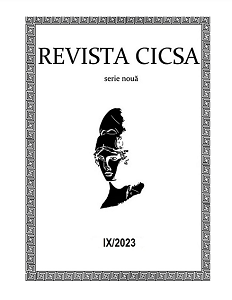Defining the Human Condition in Stoic Philosophy: A Case Study on the characterization of Emperor Marcus Aurelius
Defining the Human Condition in Stoic Philosophy: A Case Study on the characterization of Emperor Marcus Aurelius
Author(s): Noria PetracheSubject(s): Social Philosophy, Sociology, Ancient World, Ancient Philosphy
Published by: Centrul de Istorie Comparată a Societăților Antice
Keywords: self-reflection; free will; symbolic interactionism; social constructionism; agency;
Summary/Abstract: This paper investigates, from a psycho-sociological perspective, notions of self-reflection and the human condition in the Greco-Roman world during the ancient period, focusing on the social constructionism of personal characterisation. In this context, Marcus Aurelius, one of Rome's most remarkable philosopher-emperors, was considered an exemplary, wise, and moral leader during a tumultuous period marked by wars, epidemics, and betrayals. The positive image of Marcus Aurelius has endured in history due to the efforts of recording and transmission of this depiction in ancient sources, which emphasised the enrichment of imperial power with attention to the philosophical form. Both within the Stoic doctrine and from the perspective of symbolic interactionism, the human condition is perceived as a result of social construction and subjective interpretations, in which the individual has the power to shape their own experience and create their reality. Qualitative research methods associated with symbolic interactionism emphasise individual experience and understanding of the world, being helpful in explaining broad social changes and the agency of participants. This perspective provides a broad framework for analysing interactions that shape social architecture through which the image of Marcus Aurelius is propagated.
Journal: Revista CICSA online, Serie Nouă
- Issue Year: 2023
- Issue No: IX
- Page Range: 26-39
- Page Count: 14
- Language: English

